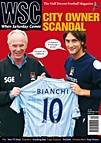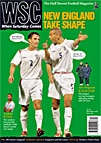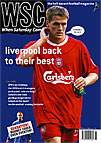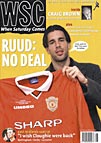 Jonathan Paxton recalls how an almost famous season for Stoke was ruined by manager and star player falling out
Jonathan Paxton recalls how an almost famous season for Stoke was ruined by manager and star player falling out
“All teams have their era,” my Grandad often tells me. “It’s just that Stoke’s came between 1939 and 1945.” Most biographies of Adolf Hitler focus on stronger crimes against humanity ahead of denying Stoke City their chance of winning silverware but few in the Potteries would argue that the club’s golden generation lost their best years to the war. In 1938-39 the team managed by former player Bob McGrory finished seventh playing some of the finest football in the country. Freddie Steele scored 26 goals at centre-forward, centre-half Neil Franklin was just out of the youth team and, on the right wing, the Potters had Hanley-born England superstar Stanley Matthews who made his debut aged 17 in 1932. Fans were rightly optimistic.



